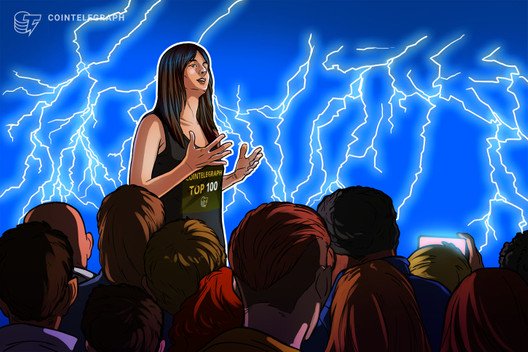The Central Bank of Brazil made some waves last week with its new instant payment system. While not blockchain-based, the new system, dubbed PIX, nevertheless is imbued with some of blockchain’s core attributes.
Money transfers have historically been slow, cumbersome and expensive. For example, Bank A takes its fee when a payment is sent and Bank B also charges its fee when the payment is received. More intermediaries mean additional fees and sometimes more delays.
But now the Brazilian central bank, or BCB, wants to cut out those intermediaries. The central bank will enable peer-to-peer and business-to-business transactions in 10 seconds or less via mobile phone, internet banking or select ATMs beginning in November 2020. “Transfers take place directly from the paying user’s account to the receiving user’s account, without the need for intermediaries, which leads to lower transaction costs,” the central bank said.
When implemented, a number of Brazilan banks could take a hit to their income from fees. Point-of-sale machines and payment processing firms could become scarce. “There is no need to have a POS machine,” the BCB noted.
The BCB had reportedly been feeling some heat from cryptocurrencies like XRP and their promises of low-priced, quick, transparent and secure payment instruments, which spurred the move.
“Trillions can be saved”
Dirk Andreas Zetzsche, a professor of financial law at the University of Luxembourg, told Cointelegraph that “instant payment is important since it makes expensive security margins for payment delays unnecessary. These are trillions of USD/EUR that can be saved.”
“Others have tried instant payment systems,” he continued. For example, the 28 countries of the European Union as well as Iceland, Norway, Liechtenstein, Switzerland, Monaco and San Marino are able to use the instant credit transfer system known as the Single Euro Payments Area, or SEPA, which promises payments across its network in less than 10 seconds.
One key difference between SEPA and the BCB’s system, however, is that PIX is mandatory for large Brazilian institutions. SEPA, by comparison, is optional, as European banks can elect to participate. According to Brazil’s central bank:
“It is mandatory for all financial institutions and payment institutions licensed by the BCB, with more than 500,000 active customer accounts — including checking and savings accounts, as well as prepaid payment accounts to participate.”
This larger group includes about 20 institutions. Smaller nonfinancial businesses would most likely partake as indirect participants, meaning their transactions will be settled through a direct participant such as a bank. But all Brazilian businesses are welcome to connect to the system, directly or indirectly, and reap the benefits of instant payments, the BCB said.
Payers can initiate payments in at least three different ways: first, through the use of keys or account nicknames such as a cell phone number, Brazilian ID numbers (i.e., CPF or CNPJ), or an email address; secondly, through a QR code (static or dynamic); or thirdly, via technologies that allow the exchange of information by proximity, such as NFC technology.
Crypto exchanges gain access
More crypto firms — including exchanges — expect to now gain access to Brazil’s National Financial System, and Brazil’s crypto community reacted positively to the news of PIX. Reinaldo Rabelo, the CEO of Mercado Bitcoin exchange, told Cointelegraph, “The Bitcoin market follows with great interest and appreciation the movements of the Central Bank of Brazil in relation to instant payment.” Furthermore, Carlos Eduardo de Andrade Brandt Silva, a deputy governor of the BCB, said in a statement to the Cointelegraph:
“There will be no restrictions for entities not regulated by the Central Bank of Brazil, including exchanges of Bitcoin and cryptocurrencies.”
Rocelo Lopes, CEO of fintech firm Stratum, who has lobbied for greater access for crypto firms to the National Financial System, also found much to approve of:
“PIX will give more freedom to cryptocurrency exchanges that operate in Brazil and will deliver more freedom to users. The entire Bitcoin ecosystem is the big winner of this initiative. Through PIX, for example, it will be possible to transfer money from one exchange to another in real time with a QR code.”
Before, Lopes explained, if he were to see an arbitrage opportunity, he would need to file a bank withdrawal request, wait for confirmation, send the funds to the transacting company’s bank, wait for the funds to arrive and be confirmed, and finally purchase the new position. He will now be able to do this directly in two seconds, he told Cointelegraph, adding:
“The winner is the entire market — including fintechs in other sectors. This will inaugurate a new Bitcoin market in Brazil and, I believe that PIX also clears the way for the central bank to issue its own CBDC [i.e., a central bank digital currency].”
Why not blockchain?
As noted, this is not a blockchain-based system. It makes use of a centralized database, owned and operated by the central bank of Brazil. Asked why the BCB may have steered clear of distributed ledger technology for the new system, law professor Zetzsche told Cointelegraph:
“A DLT takes a while until all ledgers have been updated. In the BTC universe, it is 15 minutes. That would be longer and more costly than what exists in the SEPA. I think the instant payment system that you find in Brazil and in many other countries across the world are heading in the same direction.”
Ross Buckley, a law professor at the University of New South Wales in Sydney, Australia, told Cointelegraph that distributed ledger systems are most useful if there is a trust problem, adding that, “It would be an odd central bank that had a trust problem. Also distributed ledgers are not as fast usually as centralized ledgers.”
Nonetheless, the BCB has been studying DLT for several years. In 2017, for instance, the central bank published a positioning report titled “Distributed Ledger Technical Research in Central Bank of Brazil,” in which it noted:
“A blockchain may be fully trusted to have been recorded by a verifiable entity (i.e. one which possesses the respective private keys) and untainted by anyone else. Thus, another benefit of this technology is the creation of a permanent, trusted record of assets and transactions.”
According to Cointelegraph Brasil, the BCB initially considered blockchain technology for the system but opted in the end to use ICP Brasil Digital Certificate, the Brazilian public key infrastructure that is already used in the National Payment System and does not use DLT.
Still, even if the payments system is not DLT-based, it appears to share some blockchain-like qualities, such as the way it disintermediates traditional banks and payment firms and allows for peer-to-peer and business-to-business transactions 24/7, 365 days a year.
It’s also potentially disruptive, as BCB President Roberto Campos Neto declared that by reducing operating and money transfer costs, the new system can help wean people from physical money — something that “generates a great cost for society.”









